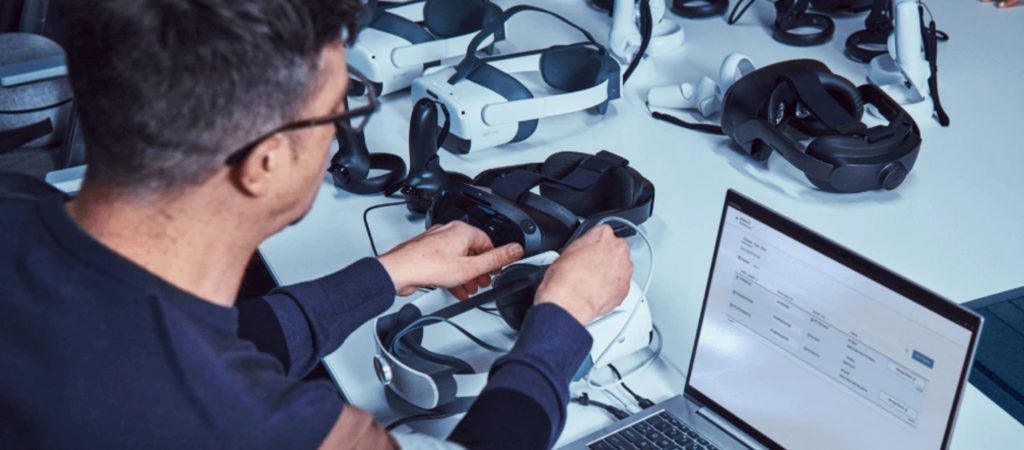When it comes to technological breakthroughs, we’re often well into the deployment of the new technology before anyone figures out we need to manage all aspects of it. The metaverse will likely prove to be no exception.
The metaverse uses existing servers and workstations, which already have a variety of management tools used to manage them at scale. But the predominantly new thing with the metaverse is the Extended Reality (XR) aspect of the environment. When you are using the metaverse for collaboration, losing a headset or having a headset that doesn’t work will critically damage the result.
Once the metaverse becomes far more common, we’ll need a way to manage not only the XR headsets but also the peripherals that will increasingly surround them as we move close to blurring the lines between reality and the virtual world.
In collaboration with ArborXR and with the support of HTC and Qualcomm, this week HP announced the first of its kind extended reality management platform, called ExtendXR, for companies managing these devices at scale.
Let’s talk about the coming XR device management problem this week.
Also read: The Metaverse Is Making AOL’s Mistakes All Over Again
Metaverse Maintenance
Extended reality is most successful in training and field repair, so it makes sense that the military and aerospace companies are largely leading the charge to both AR (augmented reality) and VR (virtual reality) at scale.
We are beginning to explore the uses for extended reality, which covers both AR and VR, for collaboration and communication, with Microsoft, Facebook and Google the largest vendors looking at this, but they are far from the only ones (Disclosure: both HP and Microsoft are clients of the author).
While it hasn’t been that difficult to set up one or two of these devices, once you start deploying them in numbers you begin to face issues like theft, misplacement, service and support, and ensuring that the wireless versions of the headsets are charged and ready for use. In addition, you have wear and tear on the devices so you need to have a way to take them out of service, replace them when needed, and then rotate them back into service when repaired. This isn’t a big issue if you have five of the devices, but it’s a problem when you are talking about 500.
And this problem will get a lot worse when we start implementing 2D treadmills, haptic gloves and other technologies designed to make the metaverse more useful and more realistic.
Also read: The Coming AI Threats We Aren’t Prepared For
ExtendXR Manages the Metaverse
HP’s new service, ExtendXR, has several elements such as XR device set-up and grouping so you can better keep track of the devices and provide software updates that are unique to the grouping. The service also includes:
- a single pane of glass browser-based console for deploying XR applications and updating the headsets, with support management for most devices available to administrators (phone, tablet, PC, etc.)
- customized application launcher to enhance XR headset experiences for end users; this also includes Kiosk Mode for multi-user support
- support for content sharing across agencies, divisions and even companies (when needed for partner support)
This is just the beginning. I expect that, over time, HP will increase the support capability for this SaaS application for the coming wave of XR peripherals like 2D treadmills, haptic gloves, and advanced headphones.
HP Gets a Virtual Head Start
XR has advanced to the point where some companies need to be able to manage large pools of VR and AR headsets and, eventually, a variety of additional peripherals. This gear is expensive, so making sure it doesn’t wander off or become unusable or obsolete is becoming the job of IT, which increasingly owns maintenance of this hardware. To address this growing need, HP has released ArborXR, the first HP-branded XR solution to manage a fleet of XR headsets (with an initial focus on VR).
Typically, this kind of solution would emerge when XR was in broader use and the metaverse was more mature, but by then a lot of companies would have been exposed. HP is stepping up to get ahead of the demand, which means Extend XR will be mature and ready when the market is. And for the few companies already using XR solutions at scale, this HP solution is well timed to deal with the device management issues that they are already experiencing.



